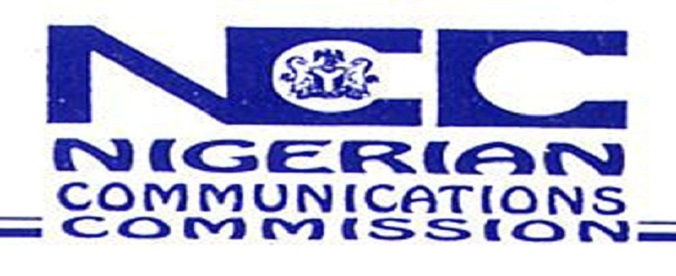Telecom
NCC Sanctions Telcos, Bars 750,000 Numbers for Call Masking, Others

Nigerian Communications Commission (NCC) has sanctioned three companies and barred 750,000 numbers found to be connected to call masking.
Call masking is a technique used to hide numbers when making calls or sending messages.
In some cases, international numbers are masked with local numbers which are not charged, because the caller’s identity is completely hidden on the network.
In a statement signed by Tony Ojobo, director, public affairs of NCC, on Tuesday, the commission said the sanctioned entities were found to be directly and indirectly involved in several infractions.
“Including covertly allowing organisations with expired licenses to transit calls, failure to undertake due diligence on parties seeking to interconnect, deliberately turning a blind eye to masking infractions by interconnect partners, and using a licence issued to another organisation to bring-in and terminate international calls which were masked as local calls to other operators.”
NCC had previously warned that it would suspend the licensees of companies suspected of call masking.
After investigations with the Office of the National Security Adviser (NSA) and the Department of State Services, NCC imposed the following sanctions:
“a. Suspension of the Interconnect Clearinghouse License issued to Medallion Communications Limited for a period of 90 days, in the first instance;
- Issuance of a strong warning to Interconnect Clearinghouse Nigeria Limited;
- Disconnection of Information Connectivity Solutions Limited (ICSL) and Solid Interconnectivity Services Limited from all networks, until they regularize their operations;
- Issuance of letters to Exchange Telecoms Limited, NiconnX Limited and Breeze Micro Limited, cautioning them against engaging in the fraudulent practice; and
- Barring of over 750,000 numbers assigned to several Private Network Links (PNL) and Local Exchange Operator (LEO) licensees, which number ranges were found to have been utilized for the practice.”
According to the statement, the licensees whose numbers have been barred are: Vezeti Communications Services Limited, Voix Networks Limited, Mobitel Limited, Peace Global Satellite Communications Limited, ABG Communications Limited, Vodacom Business Africa (Nigeria) Limited, Swift Telephone Networks Limited, QVODA Telecoms Limited, Wireless Telecoms Limited and Emcatel Networks Limited.
“Accordingly, every service provider that has been sanctioned still has an opportunity to correct the identified anomalies and satisfy the commission that it should be allowed to continue to operate in Nigeria.”
NCC said the second stage, which has commenced, is focusing on mobile network operators and other persons involved in SIM-Boxing.
Telecom
MTN Says New N6.98 USSD Charge Won’t Affect Airtime Recharge

Lynda Saint-Nwafor, chief Enterprise business officer, MTN Nigeria, has assured the network subscribers that the new end-user billing system for the use of USSD services will jot affect them.

USSD, otherwise Unstructured Supplementary Service Data codes are commonly used for banking transactions, airtime recharges, and other mobile services.
The telco said that there is no significant impact or change other than the fact that they will now pay the same N6.98 per session (120 seconds) with their airtime instead of direct bank debit.
Saint-Nwafor, said this during a chat with MTN MIP fellows, explaining that the Central Bank of Nigeria (CBN) and the Nigerian Communications Commission (NCC) have ordered telecom operators to ensure that the new billing model resolves trust issues and ensures transparency in the billing process.
“Our regulator insisted that at the end of every month, we are going to be providing history and statistics on the performance of the service across the board”, she explained.
Saint-Nwafor added that the new billing model has standardized messaging across all operators and ensures consistent communication with customers.
“We will take all the error codes and map them into messages that are standardised across the board. So, if you initiate a transaction, you will know if it is failing. And, when the transaction fails, you will know if it is from your bank or the telco,” she explained.
Telecom
Crypto Scam Unmasked: U.S. Recovers Record $225m in Global Fraud Bust

The U.S. government has recovered $225 million in what is now the largest seizure of funds linked to a cryptocurrency investment scam.

In a statement released Wednesday, June 18, the U.S. Attorney’s Office said the recovery followed an extensive investigation by the FBI and the U.S. Secret Service, using blockchain analysis and other forensic tools. The statement did not confirm whether any arrests had been made.
According to the authorities, the stolen funds originated from fraudulent cryptocurrency investment schemes that tricked victims into believing they were making legitimate investments. More than 400 individuals around the world, including dozens in the United States, were reportedly affected.
The operation involved a sophisticated money laundering network that carried out hundreds of thousands of blockchain transactions to obscure the source and ownership of the stolen assets.
“These scams prey on trust, often resulting in extreme financial hardship for the victims,” said Shawn Bradstreet, Special Agent in Charge at the U.S. Secret Service office in San Francisco.
Bradstreet added that U.S. officials hope the recovered funds can eventually be returned to the rightful victims.
Cryptocurrency investment fraud accounted for over $5.8 billion in reported losses in 2024 alone, according to the statement.
Telecom
Nnaemeka Ani Calls on African Techies to Rewrite the Narrative

In a rousing declaration that is electrifying minds across the continent, Hon. Nnaemeka Ani, Special Adviser on ICT to Enugu State Governor, Dr. Peter Mbah, has called for a homegrown digital revolution under the banner “Africa Will Rise: By Code, By Courage, By Us.”

Hon. Nnaemeka Ani
The message, part challenge, part philosophical—seeks to galvanize African innovators to move beyond buzzwords and build technology with impact and legacy in mind.
“Let’s stop building for hype. Let’s start building for legacy,” Ani urged while speaking to ICT journalists over the weekend. “Let’s stop waiting for someone else. Let’s start creating the future—on our own terms.”
At the heart of Ani’s vision is a shift from tech consumerism to tech authorship. With innovation hubs sprouting across cities like Enugu, Lagos, Kigali, Jo’Burg, and Nairobi, and a growing community of developers, engineers, and entrepreneurs determined to solve Africa’s unique challenges, the movement is already taking shape.
Ani emphasized that Africa’s future lies not in flashy apps or international admiration but in persistent, intentional solutions that uplift communities—solutions that digitize public services, bridge rural-urban divides, empower women and youth, and build resilience in food and climate systems.
“We have the talent,” he said. “Now it’s time to harness it—to stop building for likes and start building for lasting impact.”
With support from leaders like Ani and rising momentum in Africa’s tech corridors, it seems that a new chapter is being written—one line of code at a time.

 General News3 days ago
General News3 days agoNASRDA, Galaxy Space Firm Sign MoU on Satellite Connectivity

 Telecom3 days ago
Telecom3 days agoOver 1m Nigerians Reached through MTN Staff’s Digital and Community Outreach

 Telecom3 days ago
Telecom3 days agoMafab Gets 0724 Number Series, Launches Mcom 5G Brand

 News3 days ago
News3 days agoDBN Awards N13m in Grants to Tech Startups

 Telecom3 days ago
Telecom3 days agoNCC to Name, Shame Telecom Infrastructure Vandals

 News3 days ago
News3 days agoFCCPC Shuts France, Belgium, and Italy Visa Centres in Abuja Over Alleged Consumer Rights Violations

 Telecom3 days ago
Telecom3 days agoWSIS Review: Nigerian ICT Leaders Urged to Shape Global Digital Future

 E-Financial3 days ago
E-Financial3 days agoBank Customers Petition CBN over Illegal Deductions, Demand Action























